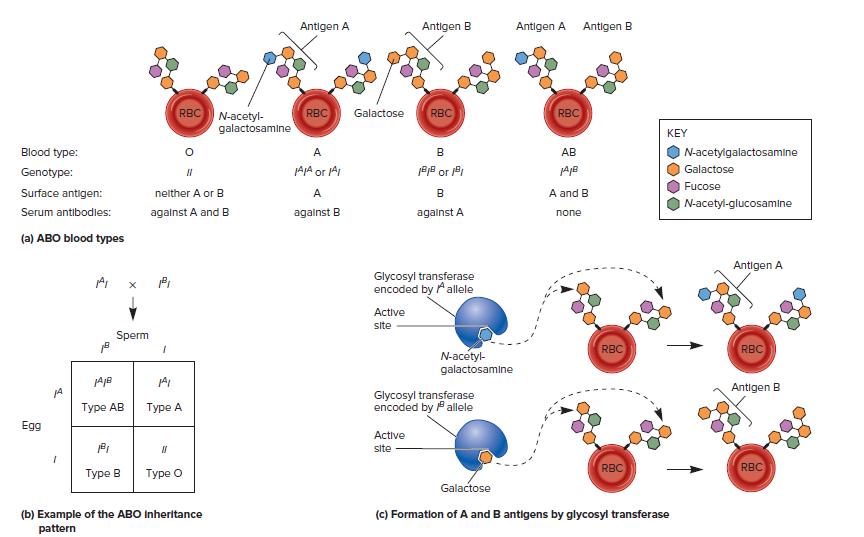Question: As shown in Figure 4.9, a gene in humans that occurs as the i, IA, and IB alleles encodes a glycosyl transferase that is involved
As shown in Figure 4.9, a gene in humans that occurs as the i, IA, and IB alleles encodes a glycosyl transferase that is involved in attaching galactose or N-acetylgalactosamine to an oligosaccharide on the surface of red blood cells. In addition, another gene, called the H gene, encodes a different glycosyl transferase that is needed to attach the sugar fucose onto the oligosaccharide and thereby make H antigen, which is the antigen found in people with type O blood.

This gene exists as the common allele, H, and as a very rare, recessive, loss-of-function allele, h. An individual who is hh is unable to attach fucose, and the resulting oligosaccharide, which is smaller, is called h antigen. A woman with blood type O has a daughter with type B blood. The daughter’s genotype is IBi.Surprisingly, the biological father of this daughter does not have type B or type AB blood. The daughter’s IB allele is not due to a new mutation. How is this possible? In your answer, identify the genotypes of the mother and father.
Figure 4.9:

h antigen Glycosyl transferase encoded by H gene H antigen
Step by Step Solution
3.36 Rating (162 Votes )
There are 3 Steps involved in it

Get step-by-step solutions from verified subject matter experts


